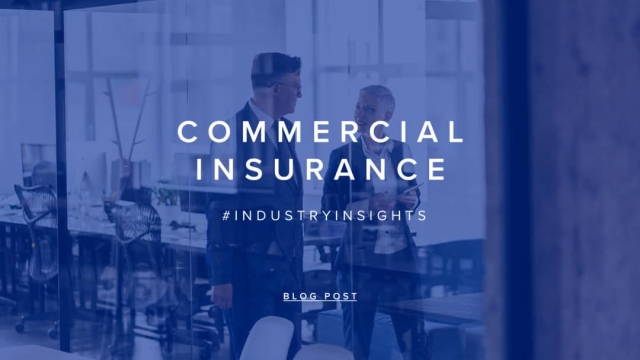Starting and running a business comes with a multitude of risks and uncertainties. From unexpected accidents to legal disputes, there are numerous challenges that can hinder the growth and success of your venture. That’s where business insurance comes into play. Insurance provides a safety net, offering protection and peace of mind in the face of potential mishaps. Whether you’re a small business owner just starting out or an established company looking to mitigate risks, understanding the world of business insurance is essential to safeguarding your enterprise.
One key aspect of business insurance is understanding the various types of coverage available. While most people are familiar with car insurance for their personal vehicles, small business insurance operates on a different level. It encompasses a wide range of policies tailored specifically to the unique needs and risks faced by businesses. Whether you’re seeking protection for your physical assets, employees, or professional liabilities, there is a policy out there to address your specific concerns. The key is to identify the areas of vulnerability in your business and find tailored coverage that suits your needs. With the right insurance coverage in place, you can confidently navigate the hurdles of entrepreneurship with added security.
Understanding the Importance of Business Insurance
Starting and running a business is an exciting journey filled with dreams and ambitions. However, it’s also important to remember that every business faces risks and uncertainties. One invaluable safeguard for any business is having the right insurance coverage.
Insurance provides essential protection for your business and its assets. Whether you’re a small startup or an established company, having business insurance can help mitigate various risks.
Car insurance is one specific type of business insurance that is crucial for companies that rely on vehicles for their operations. It protects your business from financial losses due to accidents, theft, or damages to your vehicles. Car insurance not only provides coverage for the repair or replacement of your vehicles but also covers any liability arising from accidents involving your business vehicles.
Another key aspect of business insurance is small business insurance. This type of coverage is specifically designed to meet the unique needs of small businesses. It provides comprehensive protection for your business property, inventory, equipment, and liability risks. Small business insurance can also offer coverage for business interruption, protecting your income in case unexpected events disrupt your operations.
In conclusion, business insurance is a vital investment for any business owner. It offers protection against unforeseen events, helps safeguard your assets, and allows you to focus on growing your business with peace of mind. Car insurance and small business insurance are two essential types of coverage that can provide the necessary protection for your specific needs. Understanding the importance of business insurance is a crucial step towards safeguarding your business and ensuring its long-term success.
Choosing the Right Car Insurance Coverage for Your Business

When it comes to safeguarding your business, choosing the right car insurance coverage is essential. As a small business owner, protecting your vehicles is crucial for keeping your operations running smoothly. Here are a few important factors to consider when selecting car insurance for your business.
-
Assess Your Needs: Start by evaluating your business’s specific needs and risks. Consider the types of vehicles you use, how they are utilized, and the potential risks they may face. Understanding these factors will help you determine the appropriate level of coverage required to protect your assets adequately.
-
Liability Coverage: Liability insurance is a vital component of car insurance for any business. It covers damages or injuries caused by your vehicles to others on the road. Having adequate liability coverage will protect your business from costly legal claims and medical expenses, ensuring financial security.
-
Additional Coverage Options: Depending on your business’s size and industry, you may need additional coverage options to ensure comprehensive protection. For instance, if you have valuable equipment or products transported in the vehicles, you might consider cargo insurance. Also, if your employees frequently drive their own vehicles for work, non-owned auto insurance could be a valuable add-on.
Remember that car insurance requirements can vary between states and industries, so it’s crucial to consult with an insurance professional who specializes in small business insurance. They can guide you in choosing the right coverage options tailored to your specific needs and budget.
By selecting the appropriate car insurance coverage for your business, you can safeguard your vehicles, mitigate financial risks, and ensure the smooth functioning of your operations. Stay tuned for the next section, where we will explore the importance of small business insurance overall.
Essential Types of Insurance for Small Businesses
As a small business owner, it is crucial to protect your venture from unexpected events and potential liabilities. One way to do this is by obtaining the right types of insurance coverage. Here are three essential types of insurance that every small business should consider:
-
General Liability Insurance: This type of insurance provides coverage for claims made against your business due to bodily injury, property damage, or personal injury. It helps safeguard your business from lawsuits and can assist in covering legal fees, settlement costs, and medical expenses in case of an accident or injury on your premises. General liability insurance is particularly important for small businesses that interact with customers or have physical locations.
-
Property Insurance: Whether you own or lease your business property, having property insurance is essential. This coverage protects your physical assets, including buildings, equipment, inventory, and furniture, against damages caused by fire, theft, vandalism, or natural disasters. Property insurance can help you recover or replace essential items, ensuring minimal disruption to your business operations in the event of an unforeseen incident.
-
Commercial Auto Insurance: If your small business owns or operates vehicles for business purposes, it is crucial to have commercial auto insurance. This coverage provides protection for vehicles used by your business, such as cars, trucks, or vans. Commercial auto insurance not only covers damages to your vehicles but also provides liability coverage in case of accidents involving your company’s vehicles. Having this insurance helps protect your business from potential financial losses arising from vehicle-related incidents.
By obtaining these essential types of insurance coverage – general liability, property, and commercial auto insurance – you can safeguard your small business from various risks and protect your hard-earned assets. Remember that each business has unique characteristics and insurance needs, so it’s always important to consult with an insurance professional to determine the right coverage for your specific business requirements.
